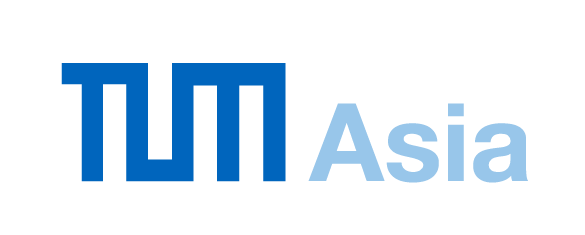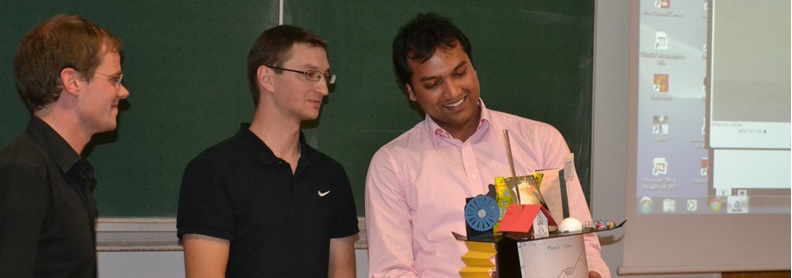A Master degree opens the doorway for one to pursue a doctorate, or also known as a PhD, which is considered one of the pinnacles in the academic world. With many cohorts of graduated students, TUM Asia is now able to count numerous successful doctorate holders among her distinguished alumni.
One such alumni is Dr. Shailesh More, a graduate from TUM Asia’s joint TUM-NTU Master of Science in Integrated Circuit Design, who then continued with his PhD with TUM, followed by an exciting career with Infineon Technologies in Germany. Returning as a guest lecturer, we speak to Dr. Shailesh More about his time at TUM Asia.
Hi Shailesh, can you give the readers an introduction to yourself?
Shailesh: After completing my Bachelors in Electronics Engineering in Mumbai, India, I went on to work for 3 years in Wipro Technologies, a major Indian I.T. company. I was interested to work in one of the services that they provided, which was related to Integrated Circuits (IC) development. I had the practical experience in the field but I was missing the complete story; lacking a strong theoretical base. While looking for good universities, I came across TUM Asia’s Integrated Circuit Design (ICD) Master’s programme in Singapore. I decided to pursue the unique programme as it was the result of the collaboration of two prestigious universities, NTU and TUM.
Not many continue with their doctoral studies after completing a Masters. Can you tell us more about how it happened?
Shailesh: Initially, pursuing a PhD was not on my mind. During my Masters programme, I had the opportunity to complete my Internship & Master Thesis at a well-known semiconductor company; Texas Instruments in Freising, Germany. At the end of the programme, I was offered a research scientist position by my Professor at TUM in department of Technical Electronics. I gladly accepted it since the topic was in the field of my interest; Mixed Signal Electronics. For the following 3 years, I was at living in Germany and working on my PhD thesis topic at TUM.
How would you describe your time at TUM, working towards your PhD?
Shailesh: The PhD at TUM was both fun and challenging at times. My thesis topic was in collaboration with Infineon Technologies (now Intel Mobile Communications) at Villach, Austria. In addition to that, I was supervising Mixed Signal Electronics Labs, Master and Bachelor theses, organising seminars and lectures every year. One thing I was thankful for was for the courses that I took during my Masters at TUM Asia. They provided me with the foundation for my research work. With the knowledge and skills I had learnt during the Masters degree, I could quickly implement concepts, generate results and make publications for my research topic. It was also one of the reasons why I could complete my PhD thesis within in a shorter period of three years.
Would you consider your current job role a result of your studies?
Shailesh: During my Masters, I learned about the concepts, knowledge and skills related to different topics of integrated circuit design. It was also the time where I picked up the German language through lessons at the Goethe-Institute in Singapore. During my PhD thesis, I focused on one particular topic, learnt to apply acquired knowledge to practice, learned new skills and worked independently. Both were positive and enriching experiences. I am currently working as a Staff Expert Mixed Signal Design at the Automotive Division of Infineon Technologies in Munich, Germany. We develop three phase bridge Driver ICs for driving motors in safety critical applications such as Electronic Power Steering in cars. The journey with TUM Asia and TUM has definitely prepared me for this career position in Germany.
Now that you have been living and working in Germany for some time, what advice would you give to those who plan to stay to work in Germany after their studies?
Shailesh: The ability to communicate in German helped me to integrate into the German society. One should be open-minded and be expected to speak some basic phrases. The tendency to want to join interest groups that share common language and cultures while living in a foreign country is common. However, being limited to such groups isolates oneself from the German culture. Even if the official language of communication in the multi-national companies in Germany is English, you will feel left out in daily conversations between colleagues and over lunch or coffee if you do not know the German language.


